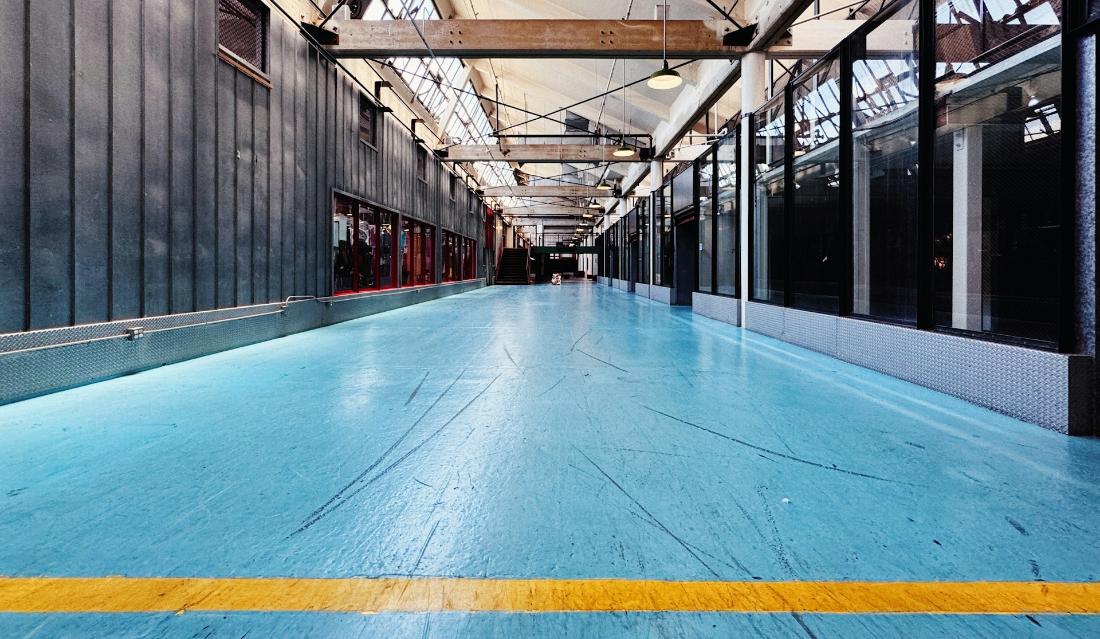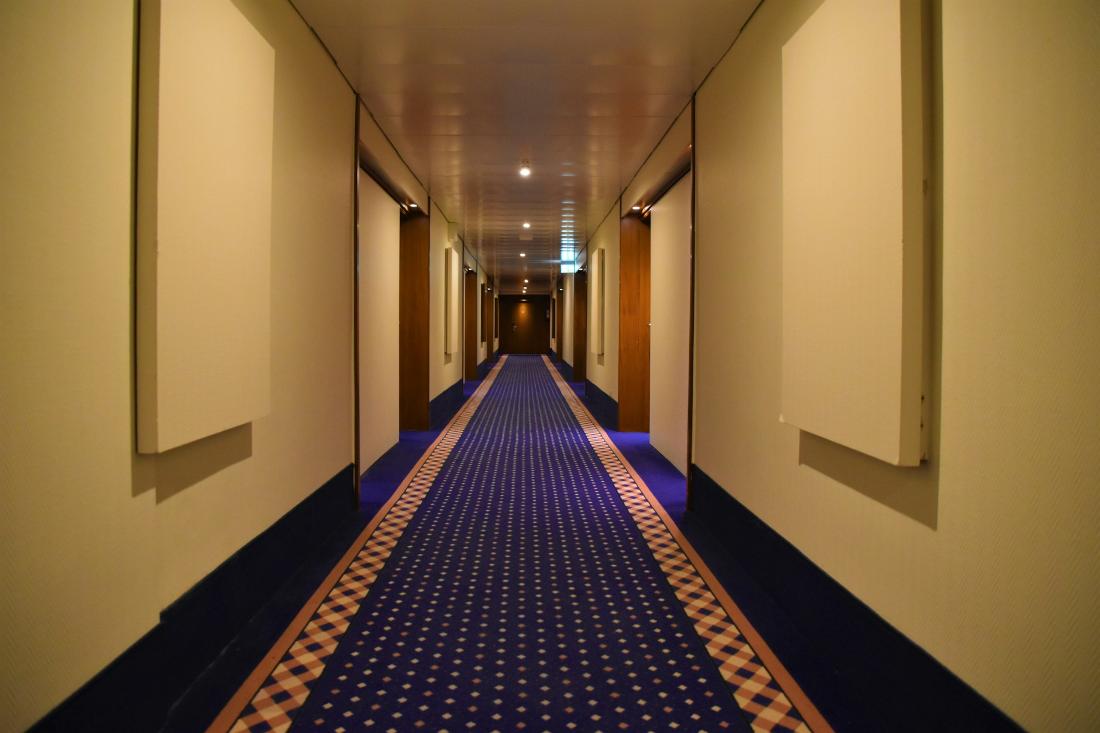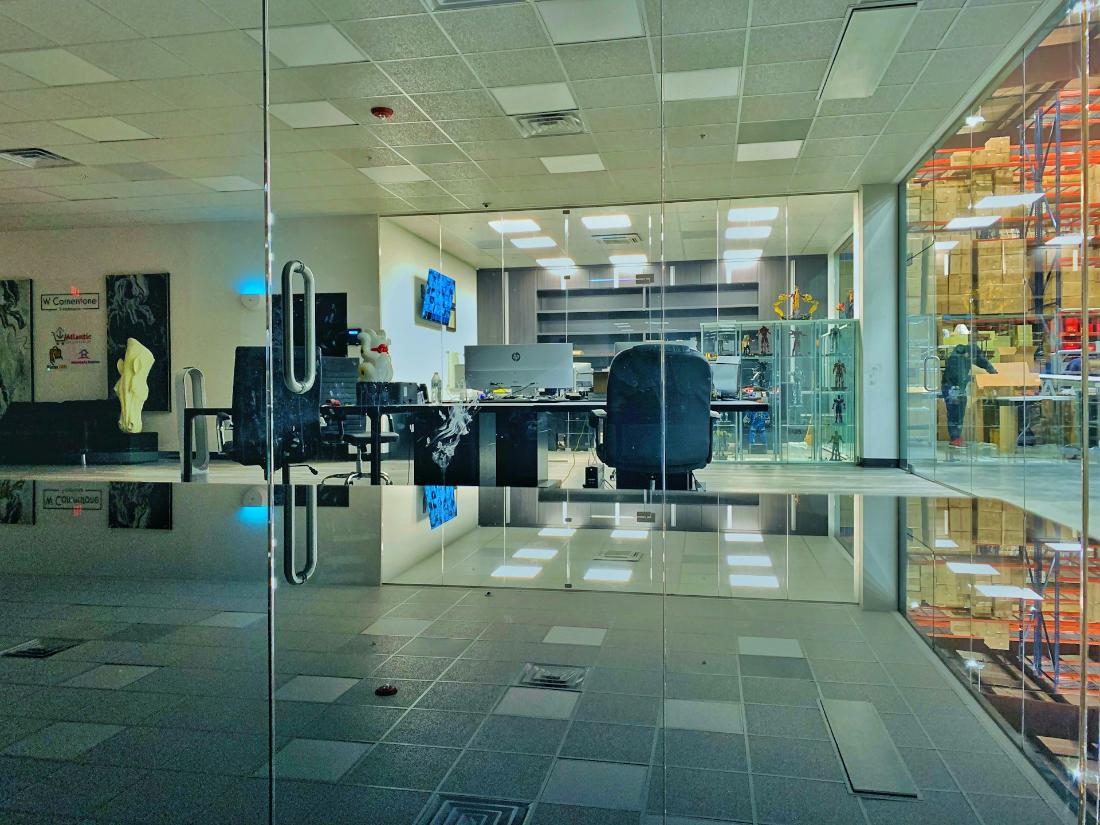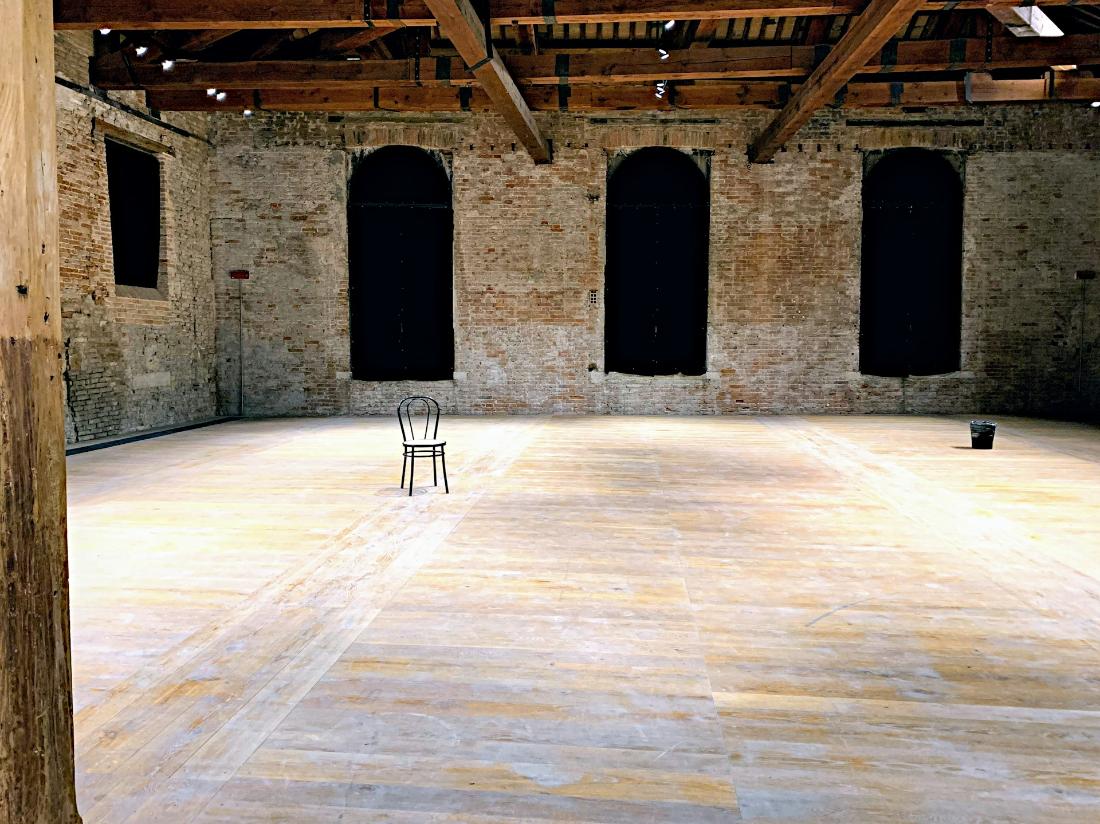Material
Flooring Specialist in Malaysia: Crafting Foundations for Beautiful Living Spaces
Jul 7 2025
The floor beneath our feet forms the foundation of every room, influencing not just aesthetics but comfort, safety, and even the acoustics of a space. In Malaysia's diverse architectural landscape, where modern high-rises stand alongside heritage shophouses, the role of a flooring specialist in Malaysia has evolved into both an art and a science. These professionals do more than simply install floor coverings—they help homeowners and businesses navigate the complex decision-making process to select materials that withstand tropical conditions while creating the desired ambiance.
Walking barefoot across cool marble on a hot afternoon or feeling the warmth of engineered timber underfoot during monsoon rains demonstrates how flooring choices directly impact daily living experiences. The tropical climate presents unique challenges that demand careful material selection—humidity that can warp natural wood, intense sunlight that may fade colors, and heavy foot traffic that tests durability. A true flooring specialist understands these factors intimately, guiding clients toward solutions that balance practicality with design aspirations.
The Malaysian Flooring Landscape: Tradition Meets Innovation
Malaysia's flooring preferences reflect the nation's cultural diversity and climatic realities. Traditional homes once favored natural materials like chengal and merbau hardwood, prized for their resistance to humidity and insects. Today's market offers an expanded palette of options, from porcelain tiles that mimic natural stone to luxury vinyl planks that replicate wood grain with waterproof practicality.
Urban dwellers in high-rise residences increasingly favor materials that combine durability with sound insulation, addressing both structural requirements and neighborly considerations. Commercial spaces demand flooring that withstands heavy traffic while maintaining professional aesthetics—a balance that requires specialized knowledge of wear layers, slip resistance, and maintenance protocols.
The flooring specialist's role has grown increasingly consultative in this complex environment. Beyond installation expertise, they must understand how different materials perform in Malaysia's humidity, how various options affect room acoustics, and how to prepare subfloors to prevent moisture-related failures. Their guidance helps prevent costly mistakes, like installing solid hardwood in bathrooms or choosing polished tiles that become dangerously slippery when wet.
Walking barefoot across cool marble on a hot afternoon or feeling the warmth of engineered timber underfoot during monsoon rains demonstrates how flooring choices directly impact daily living experiences. The tropical climate presents unique challenges that demand careful material selection—humidity that can warp natural wood, intense sunlight that may fade colors, and heavy foot traffic that tests durability. A true flooring specialist understands these factors intimately, guiding clients toward solutions that balance practicality with design aspirations.
The Malaysian Flooring Landscape: Tradition Meets Innovation
Malaysia's flooring preferences reflect the nation's cultural diversity and climatic realities. Traditional homes once favored natural materials like chengal and merbau hardwood, prized for their resistance to humidity and insects. Today's market offers an expanded palette of options, from porcelain tiles that mimic natural stone to luxury vinyl planks that replicate wood grain with waterproof practicality.
Urban dwellers in high-rise residences increasingly favor materials that combine durability with sound insulation, addressing both structural requirements and neighborly considerations. Commercial spaces demand flooring that withstands heavy traffic while maintaining professional aesthetics—a balance that requires specialized knowledge of wear layers, slip resistance, and maintenance protocols.
The flooring specialist's role has grown increasingly consultative in this complex environment. Beyond installation expertise, they must understand how different materials perform in Malaysia's humidity, how various options affect room acoustics, and how to prepare subfloors to prevent moisture-related failures. Their guidance helps prevent costly mistakes, like installing solid hardwood in bathrooms or choosing polished tiles that become dangerously slippery when wet.
Material Choices for Malaysian Homes and Businesses
Timber flooring maintains enduring popularity for its natural warmth and timeless appeal. Modern specialists often recommend engineered wood over solid planks for Malaysian homes—the cross-layered construction resists the expansion and contraction caused by humidity fluctuations. For those desiring authentic hardwood, species like teak and balau offer natural resistance to tropical conditions, though they require precise acclimatization and professional installation to prevent warping.
Ceramic and porcelain tiles dominate Malaysian kitchens and bathrooms for their water resistance and ease of maintenance. Technological advancements have elevated tile beyond utilitarian status, with digital printing creating remarkably realistic wood and stone reproductions. Flooring specialists guide clients through PEI ratings that indicate wear resistance, helping match tile durability to each room's traffic patterns.
Natural stone like marble and granite conveys luxury but demands specialized knowledge for tropical installations. Proper sealing and ongoing maintenance prevent staining in porous materials, while thickness selection ensures structural integrity. Experienced specialists understand which stone varieties best withstand Malaysia's climate—for instance, recommending honed over polished finishes for better slip resistance during rainy seasons.
Emerging materials like luxury vinyl planks (LVP) and waterproof laminate have revolutionized moisture-prone areas. These innovative products combine the visual appeal of natural materials with practical resistance to spills and humidity. Specialists now offer products with attached underlayment that dampens sound—a valuable feature for condominium dwellers mindful of noise transmission.
Specialized Flooring Solutions for Unique Needs
Commercial environments present distinct challenges that demand specialist expertise. Hospital corridors require seamless, bacteriostatic flooring that withstands frequent cleaning, while restaurant kitchens need grease-resistant surfaces with superior slip resistance. Office spaces increasingly adopt raised access flooring to accommodate cabling infrastructure, requiring specialists versed in modular systems.
For residential clients, specialists tailor recommendations to family lifestyles. Homes with young children or elderly members benefit from slightly textured surfaces that prevent slips, while pet owners may prefer scratch-resistant materials. The growing work-from-home trend has increased demand for flooring that enhances acoustics in home offices, with specialists often recommending cork or acoustic underlayments beneath other materials.
Heritage property restorations represent another specialty area. Skilled craftsmen preserve original timber floors using traditional techniques, sourcing reclaimed materials when replacements are necessary. These projects require historical knowledge to maintain architectural authenticity while incorporating modern stabilization methods.
Timber flooring maintains enduring popularity for its natural warmth and timeless appeal. Modern specialists often recommend engineered wood over solid planks for Malaysian homes—the cross-layered construction resists the expansion and contraction caused by humidity fluctuations. For those desiring authentic hardwood, species like teak and balau offer natural resistance to tropical conditions, though they require precise acclimatization and professional installation to prevent warping.
Ceramic and porcelain tiles dominate Malaysian kitchens and bathrooms for their water resistance and ease of maintenance. Technological advancements have elevated tile beyond utilitarian status, with digital printing creating remarkably realistic wood and stone reproductions. Flooring specialists guide clients through PEI ratings that indicate wear resistance, helping match tile durability to each room's traffic patterns.
Natural stone like marble and granite conveys luxury but demands specialized knowledge for tropical installations. Proper sealing and ongoing maintenance prevent staining in porous materials, while thickness selection ensures structural integrity. Experienced specialists understand which stone varieties best withstand Malaysia's climate—for instance, recommending honed over polished finishes for better slip resistance during rainy seasons.
Emerging materials like luxury vinyl planks (LVP) and waterproof laminate have revolutionized moisture-prone areas. These innovative products combine the visual appeal of natural materials with practical resistance to spills and humidity. Specialists now offer products with attached underlayment that dampens sound—a valuable feature for condominium dwellers mindful of noise transmission.
Specialized Flooring Solutions for Unique Needs
Commercial environments present distinct challenges that demand specialist expertise. Hospital corridors require seamless, bacteriostatic flooring that withstands frequent cleaning, while restaurant kitchens need grease-resistant surfaces with superior slip resistance. Office spaces increasingly adopt raised access flooring to accommodate cabling infrastructure, requiring specialists versed in modular systems.
For residential clients, specialists tailor recommendations to family lifestyles. Homes with young children or elderly members benefit from slightly textured surfaces that prevent slips, while pet owners may prefer scratch-resistant materials. The growing work-from-home trend has increased demand for flooring that enhances acoustics in home offices, with specialists often recommending cork or acoustic underlayments beneath other materials.
Heritage property restorations represent another specialty area. Skilled craftsmen preserve original timber floors using traditional techniques, sourcing reclaimed materials when replacements are necessary. These projects require historical knowledge to maintain architectural authenticity while incorporating modern stabilization methods.
The Science Behind Proper Floor Installation
A flooring specialist's true value emerges in the technical execution that ensures long-term performance. Subfloor preparation forms the critical first step—moisture testing prevents future buckling, while self-leveling compounds create perfect surfaces for rigid materials. Specialists employ different techniques for various substrates, from concrete slabs to existing floorboards.
Installation methods vary dramatically by material. Engineered wood may require glue-down, floating, or nail-down approaches depending on the situation. Tile installers must calculate precise spacing for expansion in Malaysia's heat, while carpet specialists skillfully seam large areas to prevent visible joins. The best professionals stay current with evolving adhesives and underlayment technologies that enhance performance.
Climate control during and after installation often determines success. Specialists carefully manage acclimatization periods for natural materials, monitoring humidity levels to prevent later problems. Their knowledge of seasonal variations informs ideal timing for installations—avoiding peak monsoon periods for moisture-sensitive materials, for instance.
Sustainable Flooring: Meeting Environmental Priorities
Eco-conscious consumers increasingly seek flooring options that minimize environmental impact without sacrificing quality. Specialists now offer products made from rapidly renewable resources like bamboo, which matures in just five years compared to decades for traditional hardwoods. Recycled-content tiles made from post-industrial materials provide another green alternative.
The industry has made significant strides in reducing volatile organic compound (VOC) emissions from adhesives and finishes. Water-based polyurethanes and low-emission installation systems create healthier indoor environments—a particular concern in Malaysia's air-conditioned spaces. Some forward-thinking specialists operate take-back programs that responsibly recycle old flooring materials during renovations.
Sustainable practices extend beyond materials to installation techniques that minimize waste. Digital measuring tools calculate precise material requirements, while advanced cutting systems optimize plank layouts. These efficiencies benefit both the environment and the client's budget.
A flooring specialist's true value emerges in the technical execution that ensures long-term performance. Subfloor preparation forms the critical first step—moisture testing prevents future buckling, while self-leveling compounds create perfect surfaces for rigid materials. Specialists employ different techniques for various substrates, from concrete slabs to existing floorboards.
Installation methods vary dramatically by material. Engineered wood may require glue-down, floating, or nail-down approaches depending on the situation. Tile installers must calculate precise spacing for expansion in Malaysia's heat, while carpet specialists skillfully seam large areas to prevent visible joins. The best professionals stay current with evolving adhesives and underlayment technologies that enhance performance.
Climate control during and after installation often determines success. Specialists carefully manage acclimatization periods for natural materials, monitoring humidity levels to prevent later problems. Their knowledge of seasonal variations informs ideal timing for installations—avoiding peak monsoon periods for moisture-sensitive materials, for instance.
Sustainable Flooring: Meeting Environmental Priorities
Eco-conscious consumers increasingly seek flooring options that minimize environmental impact without sacrificing quality. Specialists now offer products made from rapidly renewable resources like bamboo, which matures in just five years compared to decades for traditional hardwoods. Recycled-content tiles made from post-industrial materials provide another green alternative.
The industry has made significant strides in reducing volatile organic compound (VOC) emissions from adhesives and finishes. Water-based polyurethanes and low-emission installation systems create healthier indoor environments—a particular concern in Malaysia's air-conditioned spaces. Some forward-thinking specialists operate take-back programs that responsibly recycle old flooring materials during renovations.
Sustainable practices extend beyond materials to installation techniques that minimize waste. Digital measuring tools calculate precise material requirements, while advanced cutting systems optimize plank layouts. These efficiencies benefit both the environment and the client's budget.
Choosing the Right Flooring Specialist
Identifying a truly qualified professional requires careful evaluation beyond basic licensing checks. Portfolio diversity demonstrates experience across different material types and architectural styles—a specialist equally comfortable with heritage wood restoration and modern polished concrete signals broad expertise.
Material knowledge separates exceptional specialists from basic installers. They should readily explain comparative advantages of different products for specific applications, providing samples that demonstrate texture, thickness, and wear layers. The best professionals maintain relationships with reputable manufacturers, ensuring access to premium materials and warranty protections.
Project management capabilities prove equally important. Reliable specialists provide detailed timelines that coordinate with other trades, minimizing disruption to homes or businesses. Their quotes should clearly distinguish material costs from labor, with transparent pricing for any necessary subfloor preparation.
Post-installation support completes the value proposition. Reputable specialists offer maintenance guidance tailored to each material—from proper cleaning techniques for porous stone to recommended refinishing schedules for hardwood. Many provide follow-up inspections to address any settling or minor adjustments needed after installation.
The Future of Flooring in Malaysia
Technological innovations continue reshaping flooring possibilities. Smart floors with embedded sensors can monitor foot traffic patterns in retail spaces or detect falls in elderly care facilities—applications just beginning to emerge in Malaysia. Photovoltaic flooring that generates solar energy remains in development but hints at future sustainability integrations.
Material science advancements promise even more durable and sustainable options. Researchers are developing self-healing coatings that repair minor scratches and improved waterproofing technologies that extend material lifespans. As augmented reality tools become more sophisticated, clients will increasingly visualize flooring options in their actual spaces before making selections.
The growing wellness design movement influences flooring choices too. Specialists now consider factors like underfoot comfort for standing workspaces and sound absorption for mental well-being. These human-centered considerations will likely gain prominence alongside traditional durability and aesthetics.
Conclusion: Building Relationships One Floor at a Time
A quality flooring installation represents both an immediate transformation and a long-term investment. In Malaysia's challenging climate, the difference between flooring that endures and flooring that disappoints often lies in the specialist's expertise. From material selection that anticipates decades of use to precision installation that prevents future problems, professional guidance proves invaluable at every step.
The best flooring specialists understand their role extends beyond technical execution—they help clients navigate emotional decisions about their living or working environments. Whether preserving the character of a heritage home or realizing the sleek vision of a modern office, these professionals combine craftsmanship with consultative insight to create foundations for beautiful, functional spaces.
As Malaysian architecture continues evolving and new materials emerge, the flooring specialist's knowledge and skill will remain essential in transforming houses into homes and spaces into places where life unfolds comfortably, safely, and beautifully.
Identifying a truly qualified professional requires careful evaluation beyond basic licensing checks. Portfolio diversity demonstrates experience across different material types and architectural styles—a specialist equally comfortable with heritage wood restoration and modern polished concrete signals broad expertise.
Material knowledge separates exceptional specialists from basic installers. They should readily explain comparative advantages of different products for specific applications, providing samples that demonstrate texture, thickness, and wear layers. The best professionals maintain relationships with reputable manufacturers, ensuring access to premium materials and warranty protections.
Project management capabilities prove equally important. Reliable specialists provide detailed timelines that coordinate with other trades, minimizing disruption to homes or businesses. Their quotes should clearly distinguish material costs from labor, with transparent pricing for any necessary subfloor preparation.
Post-installation support completes the value proposition. Reputable specialists offer maintenance guidance tailored to each material—from proper cleaning techniques for porous stone to recommended refinishing schedules for hardwood. Many provide follow-up inspections to address any settling or minor adjustments needed after installation.
The Future of Flooring in Malaysia
Technological innovations continue reshaping flooring possibilities. Smart floors with embedded sensors can monitor foot traffic patterns in retail spaces or detect falls in elderly care facilities—applications just beginning to emerge in Malaysia. Photovoltaic flooring that generates solar energy remains in development but hints at future sustainability integrations.
Material science advancements promise even more durable and sustainable options. Researchers are developing self-healing coatings that repair minor scratches and improved waterproofing technologies that extend material lifespans. As augmented reality tools become more sophisticated, clients will increasingly visualize flooring options in their actual spaces before making selections.
The growing wellness design movement influences flooring choices too. Specialists now consider factors like underfoot comfort for standing workspaces and sound absorption for mental well-being. These human-centered considerations will likely gain prominence alongside traditional durability and aesthetics.
Conclusion: Building Relationships One Floor at a Time
A quality flooring installation represents both an immediate transformation and a long-term investment. In Malaysia's challenging climate, the difference between flooring that endures and flooring that disappoints often lies in the specialist's expertise. From material selection that anticipates decades of use to precision installation that prevents future problems, professional guidance proves invaluable at every step.
The best flooring specialists understand their role extends beyond technical execution—they help clients navigate emotional decisions about their living or working environments. Whether preserving the character of a heritage home or realizing the sleek vision of a modern office, these professionals combine craftsmanship with consultative insight to create foundations for beautiful, functional spaces.
As Malaysian architecture continues evolving and new materials emerge, the flooring specialist's knowledge and skill will remain essential in transforming houses into homes and spaces into places where life unfolds comfortably, safely, and beautifully.



